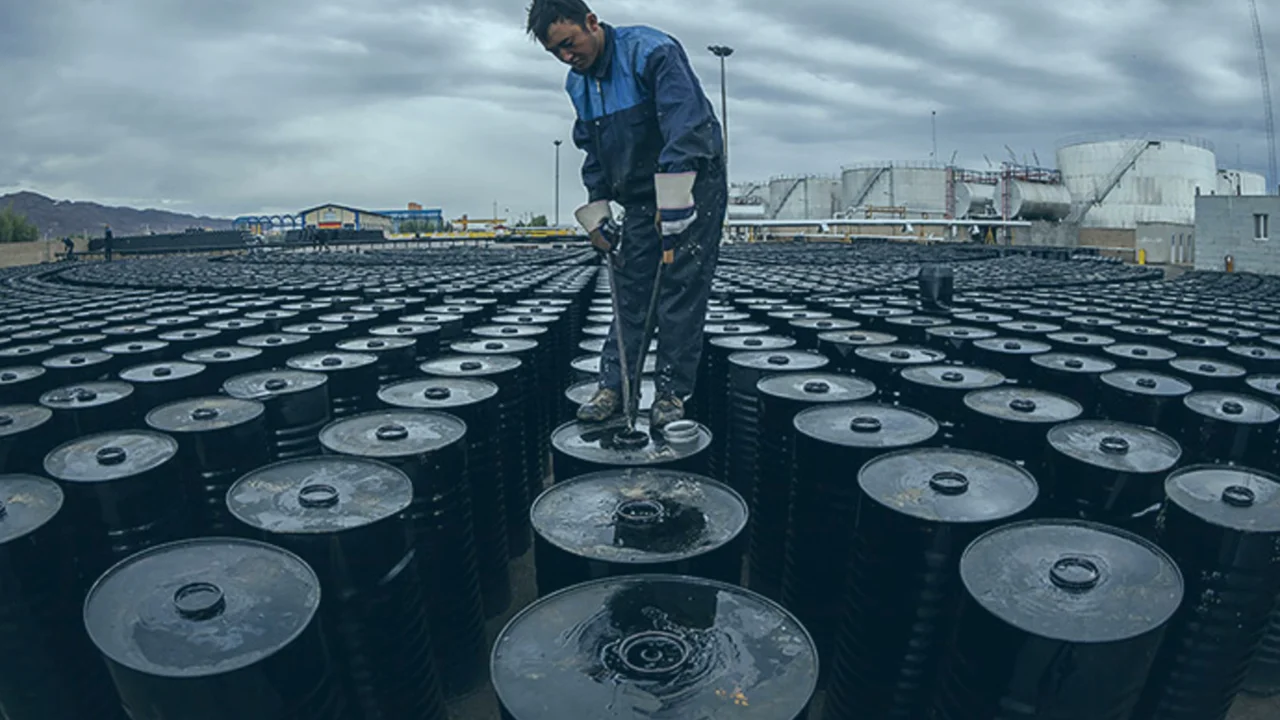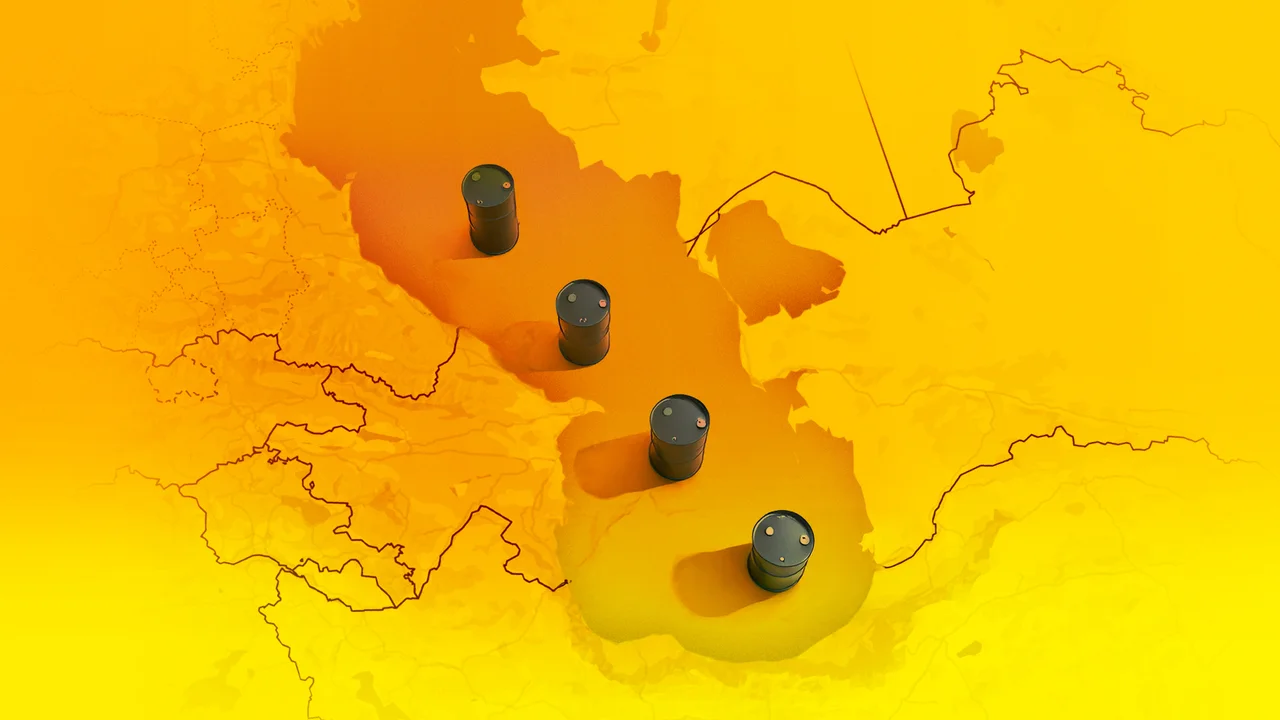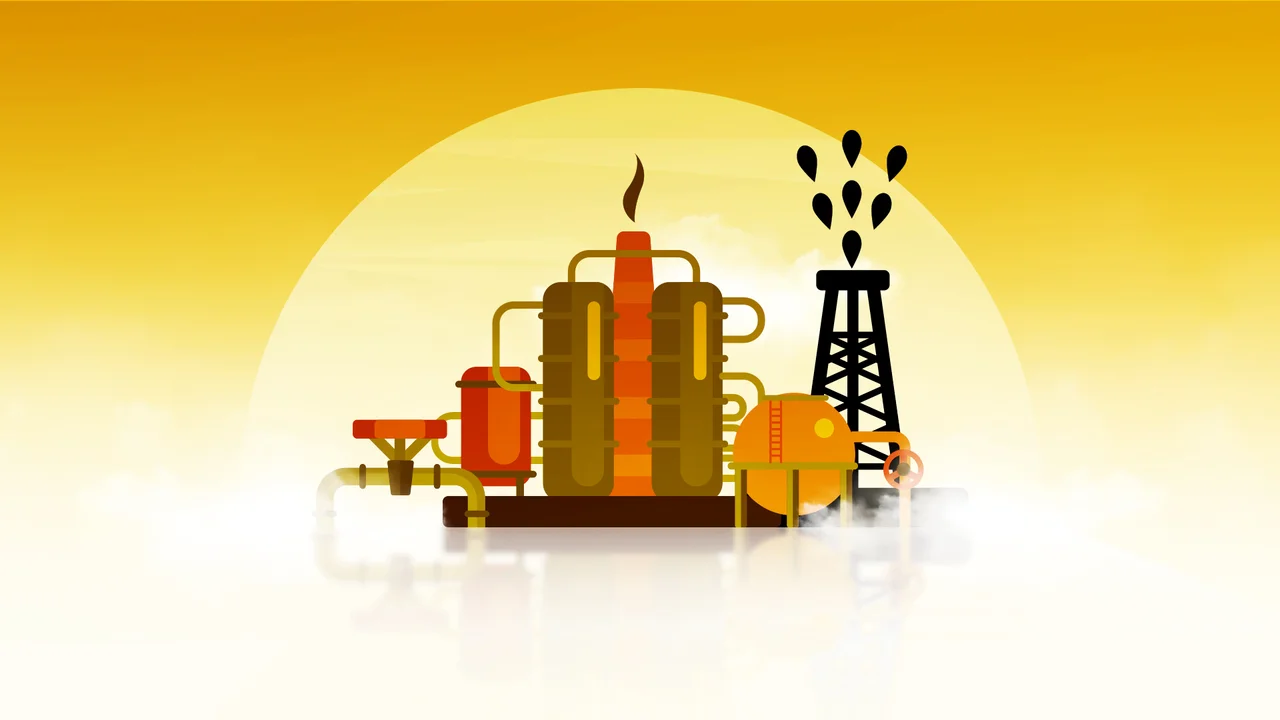Iran’s Subsidized Bitumen Flows Into Private Pockets
A group of political stakeholders including the Islamic Revolutionary Guard Corps (IRGC) receive as much as 20 trillion Tomans (about $421.9 million, at an exchange rate of 47,400 Tomans/$1) worth of “free bitumen” from the Iranian government, an Iran Open Data analysis has shown. One of the provisions of the 1402 budget, “free bitumen” is allocated to stakeholders in the executive and governmental apparatuses, such as the IRGC and some government ministries, to facilitate their infrastructure programs.
In paragraph "K" of the current year's budget bill, the Oil Ministry has been obliged to provide approximately 20 trillion Tomans ($47,400) worth of crude oil to refineries as raw material, specifically in vacuum bottom (bitumen) form, to a number of governmental entities.
Chart Link
Forty-eight percent of the allocated free bitumen quota belongs to the Ministry of Roads and Urban Development to be used for asphalt for main and secondary roads. Following that, the Housing Foundation and the Organization of Municipalities under the Ministry of Interior have the highest shares of the free bitumen quota, with 20% and 17%, respectively.
Basij-e Sazandegi, an affiliated institution of the Islamic Revolutionary Guard Corps (IRGC), with a 7% quota, is the fourth-largest recipient of bitumen. The value of the Basij's bitumen quota is approximately 1.4 trillion Tomans (about $29.4 million), which is three times the annual budget of Basij-e Sazandegi. The free bitumen allocated to the Basij is intended for "asphalting the roads between farms, law enforcement bases, Basij resistance bases, martyrs' cemetery, museum gardens, and monuments of the sacred defense," as well as the asphalting of airbases, military bases, and Basij administrative facilities.
After the Basij, the Ministry of Education (Schools Renovation Organization), the Agricultural Jihad (Natural Resources Organization), and the Ministry of Industry, Mining, and Trade receive 5%, 2%, and 1% shares of the free bitumen, respectively, according to the budget law.
Chart Link
For years, the distribution of free bitumen, which is embedded in the budget law, and the corruption associated with it has been widely debated.
The financial benefits of free bitumen distribution are reportedly enjoyed by a large network consisting of oil executives, officials, parliamentary representatives, contractors, and domestic and foreign intermediaries. The Supreme Audit Court of Iran announced in 1398 that criminal charges are in the process being brought against certain individuals.
The bitumen program was initiated in 1392 to help reduce the costs of state infrastructural projects. After facing criticism, the government removed free bitumen from the 1400 budget. However, after the formation of the Eleventh Parliament, representatives added it back in the supplementary sessions of the budget bill and reinstated the provision for free bitumen.
Prior to the establishment of the “revolutionary parliament” and the government of Ebrahim Raisi, media outlets affiliated with the Revolutionary Guards were among the main critics of free bitumen. However, after the change in government and the allocation of a 7% share to the Basij Construction Organization, the media criticism disappeared.
In a detailed report in 1399, Fars News Agency, affiliated with the Islamic Revolutionary Guard Corps, delved into the aspects of corruption related to free bitumen distribution and explained how this budget provision benefits vested interest groups.
The National Iranian Oil Company (NIOC) has been designated as the responsible entity for allocating bitumen to selected contractors, but this company has no supervisory power over the implementation and progress of the projects. This creates the opportunity for government officials to collude with contractors and engage in document falsification to obtain more than the required amount of free bitumen. Projects without economic justification receive free bitumen, and after receiving it, these projects are abandoned.
The National Oil Company is obligated to purchase raw materials such as lube cuts and vacuum bottoms from refineries and supply them to the bitumen production company in exchange for receiving bitumen from them. For instance, if the bitumen factory needs 103 tons of raw materials for every 100 tons of bitumen produced, it reports this figure as 137 tons to the government. This means that an additional 37% of raw materials is provided to the bitumen production factory during the delivery of said material.
Despite these benefits, the quality of the bitumen utilized in state-sponsored infrastructure projects is often poor. Contractors who receive high-quality bitumen for free from the NIOC do not always use it. Instead, they set it aside for export or domestic sales and, in turn, purchase low-quality bitumen to use in projects for which the bitumen is intended.
Approximately 5.5 million tons of bitumen are produced annually. According to the budget law, four million tons of bitumen are allocated to contractors for free each year. In principle, the amount of bitumen exports should be around 1.5 million tons. However, customs statistics reveal that bitumen exports in the years 1396 to 1398 were approximately four million tons. In other words, more than two million tons of the freely provided bitumen are being exported out of the country. The proceeds are being divided among the middlemen.



